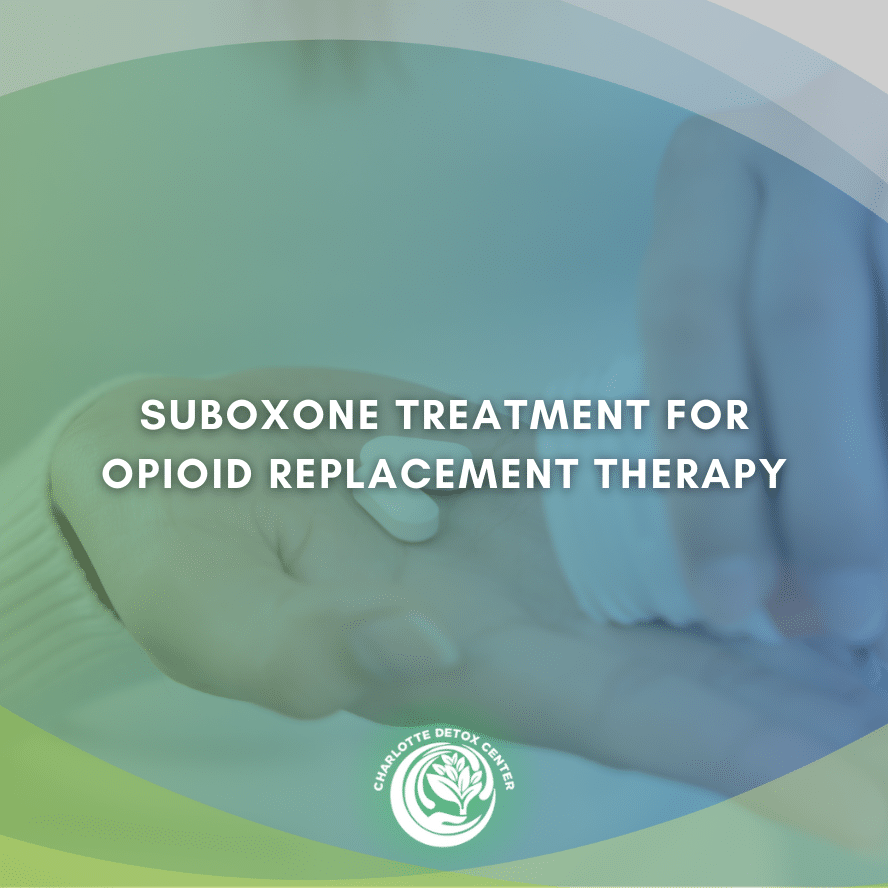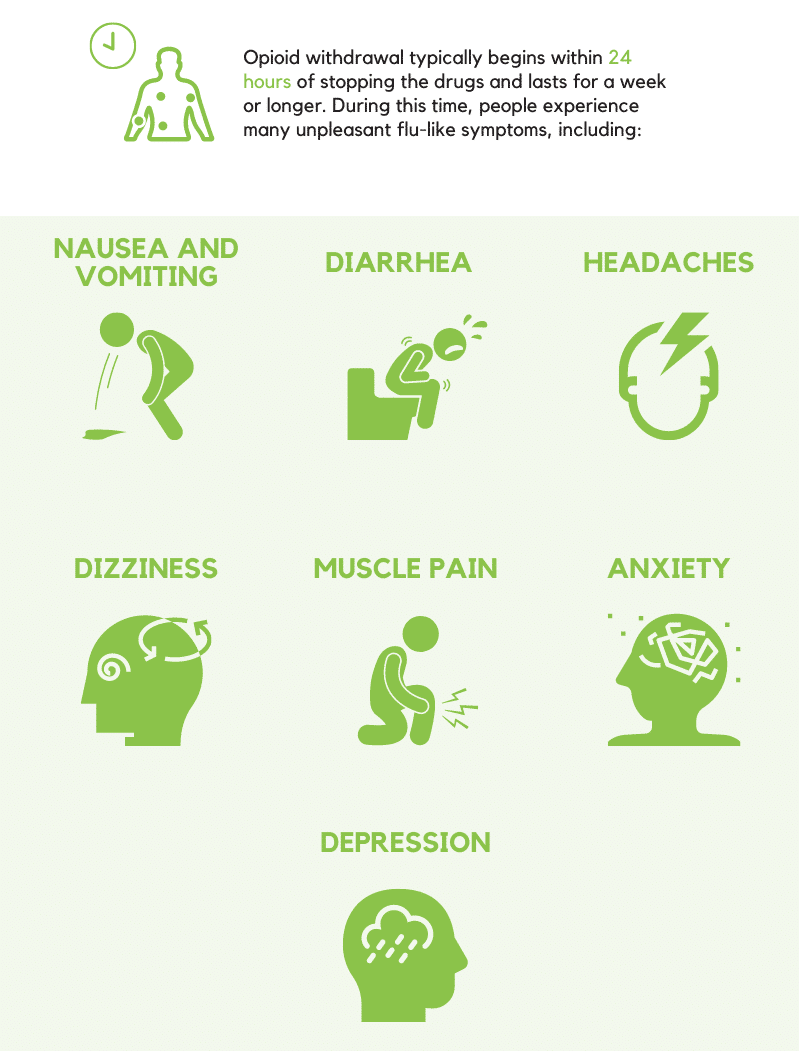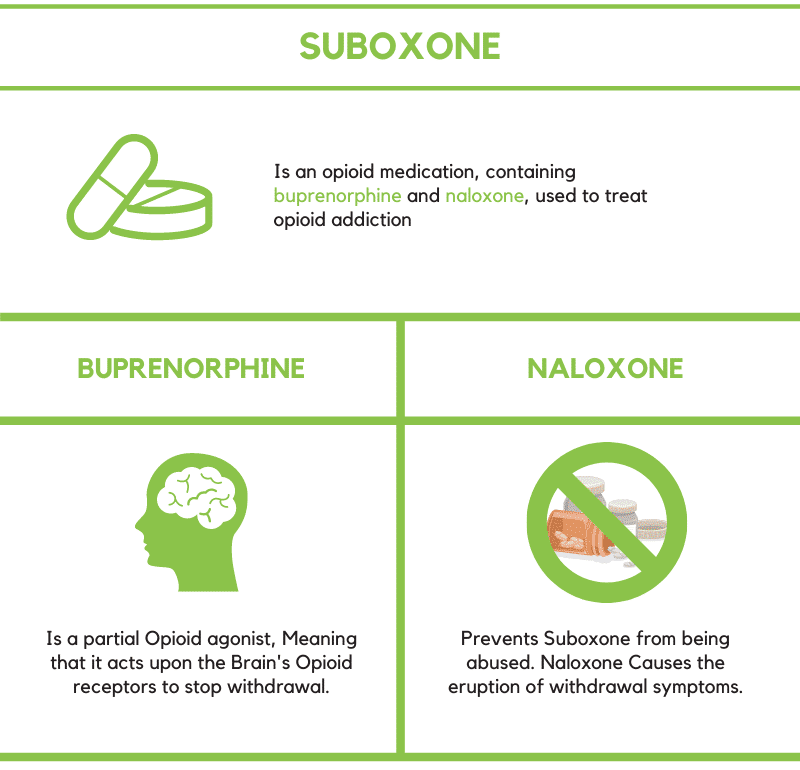Suboxone Treatment for Opioid Replacement Therapy

Medically Verified: 2/1/24
Medical Reviewer
Chief Editor

All of the information on this page has been reviewed and verified by a certified addiction professional.
Suboxone is a medication used to treat people who suffer from opioid use disorder during addiction treatment. Many people have been able to successfully quit abusing opiates with the aid of Suboxone treatment. Quitting opiates is difficult. After all, opioids are highly addictive and one of the most difficult drugs to stop using. However, help from a drug detox near you will help make the process easier.
Suboxone, in conjunction with therapy and counseling, is proven clinically effective in treating opiate addiction. It is typically used in early recovery but can be used for long term treatment as well. It is important to participate in therapy and a comprehensive treatment plan while taking the medication in order to treat any underlying issues that may contribute to an individual’s opiate addiction. Professionals at treatment centers and rehabs help patients develop a comprehensive treatment plan that includes medication as well as therapy to meet their individual needs.
What Is Suboxone?
Opioid abuse produces feelings of pleasure and happiness. They also serve to block pain by blocking opiate receptors throughout the brain, spine, and gastrointestinal tract. The effects of opiates in producing feelings of pleasure as well as blocking pain are what make them so highly addictive. As a result, they are one of the most commonly abused medications in the United States.
Due to the widespread abuse of opioids, the healthcare industry has sought the help of FDA-approved medications to treat opioid use disorder, like Suboxone. Suboxone consists of two medications, buprenorphine and naloxone.[1] Buprenorphine is a weak opiate. The drug works to replace stronger, more addictive opiates that are commonly abused such as Percocet or heroin. Naloxone, on the other hand, blocks the pleasant feelings that the opiate (buprenorphine) produces. It also blocks the opiate’s ability to reduce pain. This makes Suboxone far less addictive because it eliminates the properties that make opiates addictive in the first place.
Why Is Suboxone Treatment Useful During Opioid Detox?
After a person has been taking opiates on a regular basis or for an extended period of time, their body develops a tolerance to them. Opioids work by producing “feel good” chemicals, or endorphins, in the brain to increase feelings of euphoria, well-being, and pain relief. Opiates also block opiate receptors throughout the body, which is how they reduce pain. Eventually, the body gets used to having the opiates in its system. Over time, people need to take more of the substance to get the desired results. Once an addict stops taking these drugs, they are left in a deficit of these “feel good” chemicals. As a result, withdrawals set in and the opioid detox process begins.

This is where Suboxone treatment comes in. Suboxone, when administered during opioid detox, helps to lessen withdrawal symptoms. It works by replacing the opiates the body is missing, which is the primary cause of withdrawal. Once detox is over, there is still a long road to recovery ahead. Suboxone is a useful tool on that journey.
What Are the Uses Of Suboxone After Opioid Detox?
While Suboxone is very useful during detox, it is also used as one part of a comprehensive, long term addiction treatment plan to ensure a successful recovery from opioid use disorder. When coupled with counseling and therapy, Suboxone helps eliminate cravings entirely during long term treatment. It is important for addicts to work closely with an addiction therapist at a rehab center to develop an individualized treatment plan for their specific needs.
By replacing opioids and eliminating their addictive qualities, Suboxone makes it easier to focus on therapy and counseling. Due to its inability to block pain and produce more of the “feel good” chemicals, Suboxone is also less likely to be abused than other opioid medications. This type of opioid replacement therapy helps eliminate cravings and reduces the risk of relapse – giving people the best chance at long term recovery. Suboxone also helps individuals have increased feelings of overall well-being and reduced stress. As stress is a very common trigger for relapse, it is important for individuals in recovery to effectively cope with stress and remain armed with relaxation techniques throughout their sobriety. While Suboxone can help minimize these effects, behavioral therapy is the key component in sustaining long-term recovery.
Suboxone Treatment For Opioid Recovery
Our detox center in Charlotte, North Carolina has an excellent staff of highly trained professionals in addiction treatment. Our addiction counselors are available to build a personalized treatment plan that fits your personal needs. They are able to prescribe medications, such as suboxone, throughout the detox and opioid recovery process. They are also available to provide comprehensive therapy in conjunction with Suboxone treatment to address the root causes of addiction.
The road to recovery is long and arduous, but for some, Suboxone makes that road shorter and easier to navigate. In-depth therapy and medication-assisted treatment are effective ways to reduce the risk of relapse and ensure addicts stay on the right path. Suboxone, along with our addiction counselors, ensures that each individual has all the tools needed for a successful recovery.

